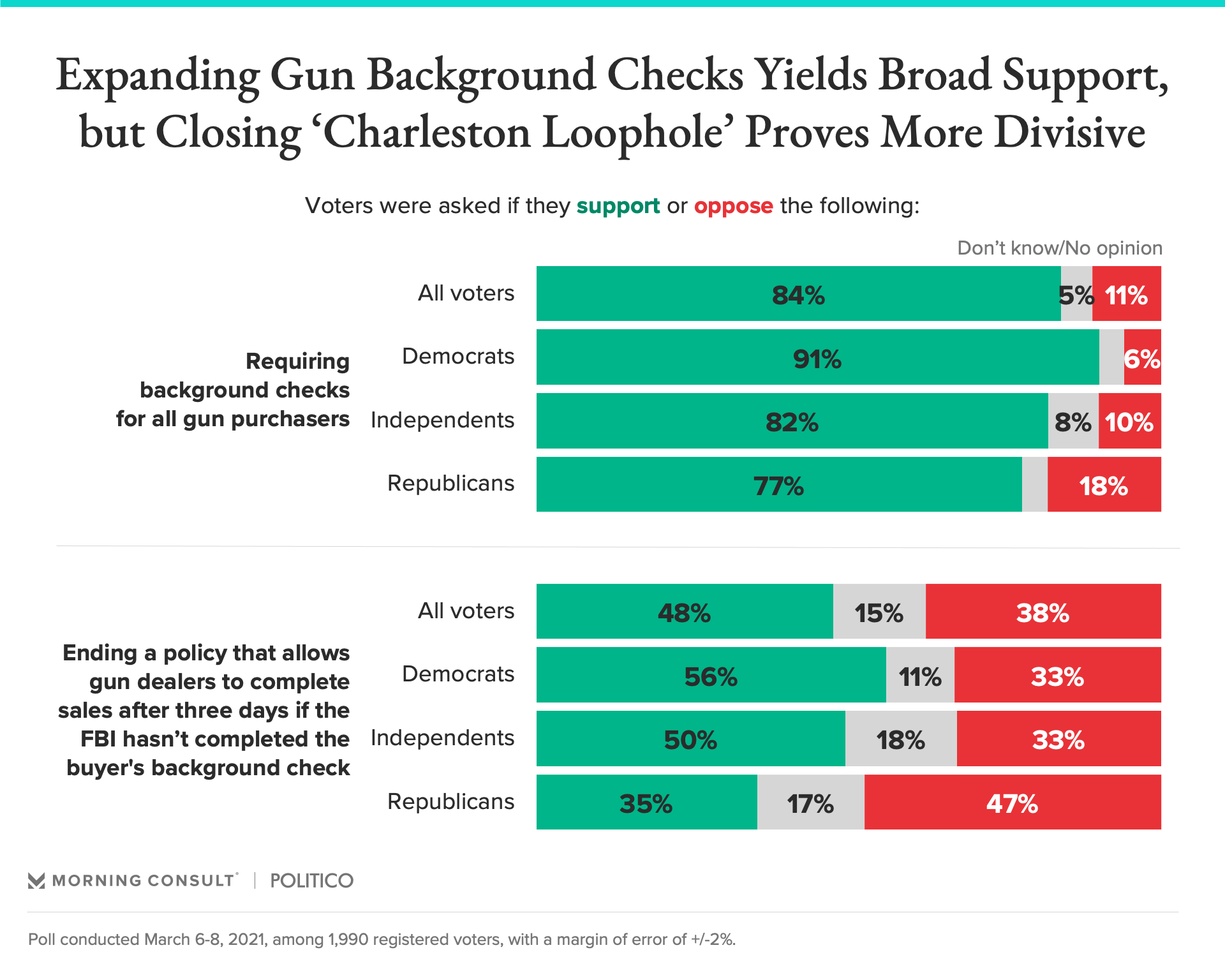Despite a platform of unity that brought Joe Biden to the White House, the first 100 days of his administration have been defined by partisan legislating. To date, he has signed 60 executive orders on issues rangings from halting the construction of Trump’s border wall to canceling the Keystone XL pipeline. His biggest piece of legislation so far, a $1.9 trillion Covid relief bill, was passed along party lines using budget reconciliation. On the horizon, Biden and a Democratic-controlled Congress have set their sights on passing two massive proposals – a $2 trillion infrastructure and jobs plan and $1.8 trillion investment in families – which they will again attempt to jam through without Republican support.
Unlike the early days of Obama’s presidency, whose economic agenda was roiled by performative bipartisanship, the Biden team has not hesitated to swiftly wield its Congressional control when the will for compromise did not produce reasonable results. Still, it appears that the American public is responding favorably to Biden’s approach – garnering double-digit positive approval ratings in recent Post-ABC and NBC polls.
But now comes the hard part for Biden. Only so much legislation can be passed through the budget reconciliation process and Democrats have a slim majority in the Senate. If Biden wants to tackle key campaign promises like gun control, voting rights, and immigration, he will have to either find a fulcrum of bipartisanship or eliminate the filibuster.
As a Senator, Joe Biden had an instinct for bipartisan legislating, but unfortunately, in our current political landscape, the chances of the required 60 Senators suddenly coming together on any major issue is slim at best. After all, the Senate is a completely different beast than it was in the late-80s and 90s when Biden was the Chair of the Senate Judiciary Committee and benefited from a stronger axis of moderates.
So far, each of Biden’s policy propositions has been parried by discordant Republican counteroffers that often buck public consensus. When Biden proposed a 1.9 trillion COVID-19 stimulus bill, ten GOP Senators replied with a $600 billion alternative. As the Democratic Party pushes for sweeping voting right legislation through H.R.1, Republican-controlled state legislatures across the country are riding on the long-debunked, conspiratorial ‘Big Lie’ of election fraud to pass local voting restrictions.
Currently, Biden’s ‘Build Back Better‘ plan is widely popular across all political persuasions, according to Data For Progress. Among 1291 likely voters, it is supported by a margin of 47-points – 69 percent support, 22 percent oppose. Republican respondents were in favor by a margin of 50-42. Even so, Republican politicians opposed the plan before it was even introduced, arguing that the package should be limited to transportation, broadband internet, and other basics, but not green energy initiatives despite public support. Moreover, the GOP balked at Biden’s proposed corporate and wealth tax-hikes to pay for the plan, despite such taxes being almost as popular as the plan itself.
So, with no prospect of bipartisan legislating on the horizon, a fight on the filibuster is coming. As such, Democrats need to find a hill to plant their flag on: an issue that will give them the best chance of busting open this archaic procedure. Of all the kitchen-table issues, the one issue that can galvanize activists, conjure bipartisan public support, and perhaps sway an intransigent Joe Manchin is gun control.
The reason why gun control should be at the center of the fight to end the filibuster was best outlined by Dan Pfeiffer, a former White House Communication’s Director for Obama, in his political newsletter The Message Box:
“At some point in the near-ish future, there will be a confrontation in the Senate. Democrats will push a piece of legislation with majority support, and Republicans will block it using the filibuster. How that confrontation comes to be and how it plays out will be critical. It’s better that it happens at a time and place chosen by the Democrats to maximize public attention and the odds of success.”
As Pfeiffer noted, conventional Democratic political strategies would decree that the party should not touch gun control at all costs, but that wisdom has changed given the daily stories of gun violence that plague American society. In 2019 alone, there were 14,400 gun-related homicides. According to The Gun Violence Archive, there have been more than 600 mass shootings in 2020. Four mass shootings have occurred this year alone – at a FedEx facility in Indianapolis, an office complex in Orange County, CA, a supermarket in Boulder, CO, and massage parlors in Atlanta.
Understandably, gun violence and mass shootings, in particular, are at the forefront of the American psyche. In early March, a Morning Consult-POLITICO survey found that 84% of voters – including 77% of Republicans – support requiring all gun purchasers to go through a background check. When asked about specifically closing the so-called “Charleston Loophole” that allowed the mass shooting at a Charleston church in 2015, 48 percent of those surveyed supported the measure with 38 percent in opposition. In short: the public will is there.
On top of that public consensus, Pfeiffer also points to the groundswell of gun-control advocacy groups that have developed a sizeable presence on Capitol Hill. There is March For Our Lives, Everytown, Moms Demand Action, and others. Almost all of these organizations rallied around Biden on the campaign trail, and as president, they have pinned their hopes to his presidency. Furthermore, the National Rifle Association (NRA), the arch-nemesis for many of these activist groups, has been embroiled in internal struggle and has recently tried to file for bankruptcy. As soon as Biden and the Democratic party signal the play and get the ball rolling, an army of some of the most determined activists in America will mobilize against a weakened, unpopular foe.
But of course, none of this is possible without the blessing of one man: Senator Joe Manchin III of West Virginia, the “most powerful Senator in Washington.” Along with fellow Dem. Sen. Krysten Sinema (D-AZ), Manchin has not minced words in his opposition to abolishing the filibuster; however, he has been one of the most active lawmakers in the push to enact common-sense gun legislation. Following the mass shooting at Sandy Hook Elementary School in 2012, Manchin was the lead sponsor of a bill for universal background checks – a bill ironically stymied by a Republican filibuster.
Even today, Manchin is working to put forth bipartisan gun-control legislation by working with outgoing Senator Pat Toomey (R-PA). The two had worked on gun legislation before, but according to reporting from Punchbowl News, they are again failing to find the bipartisan appetite for such a bill. Furthermore, Toomey has very few allies within the GOP after voting to convict Trump earlier this year.
If the Manchin-Toomey bill dies and all avenues of bipartisanship are closed, Democrats will have a golden opportunity. Flanked by gun-control activists and public support, they will have an issue that they can point to that can justify ending the filibuster. In addition, Joe Manchin and other holdouts will also have a plausible excuse to reverse their stance and join the rest of the fold. If all 50 Democrats in the Senate unite and use gun control as a battering ram to bring down the filibuster, they can bring a fight to the GOP that they surely want to avoid.
______________________________________________________________________________________________________________________
James Meadows
The managing editor of Smerconish.com, James joined the team after a year of service working as a creative writing fellow at a high school in North Philadelphia. He graduated from the University of Pennsylvania in May of 2019, receiving the Carolyn Marvin Award for “advancing our understanding of the importance of free speech and assembly in a democratic society.” A passionate journalist, James has done stints with The Philadelphia Inquirer, The Philadelphia Citizen, WHYY, and others. Today, he is in charge of managing the website, preparing the morning newsletter, and editing all of the written submissions from the Smerconish community!
______________________________________________________________________________________________________________________









